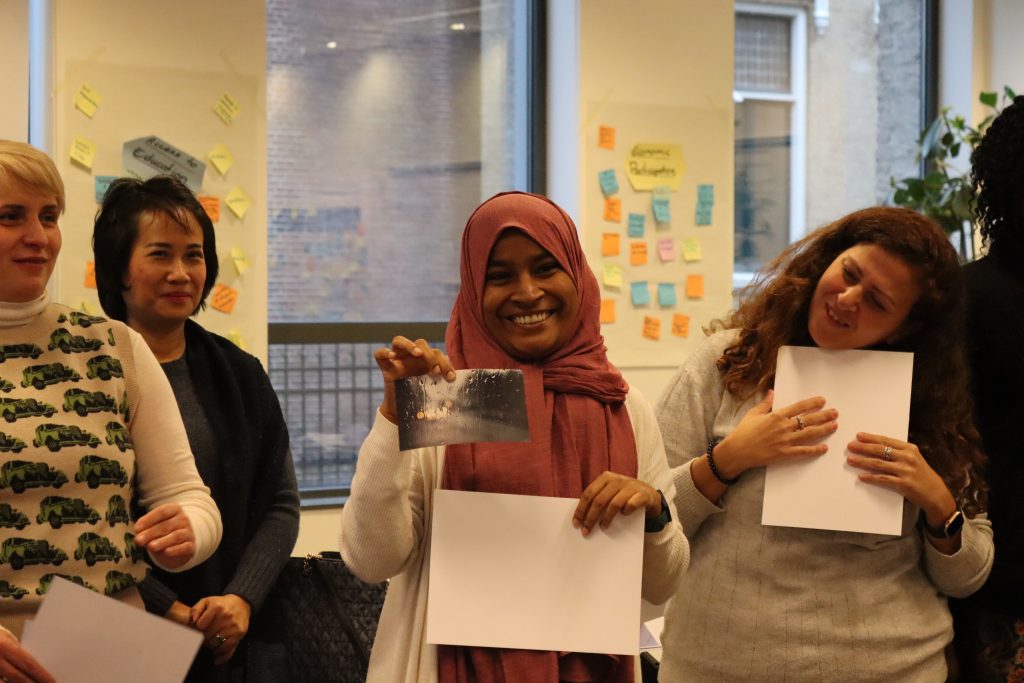The Importance of Gender Responsive Budgeting
Local governments play a key role in service delivery, but traditional budgeting often overlooks the needs of women and marginalised groups, leading to unequal access to resources and services.
Although local practitioners are increasingly incorporating gender responsiveness into their policies, the largest hurdle they still face is securing the budget they need to put policy to practice.

Gender Responsive Budgeting (GRB) integrates gender considerations throughout the budget cycle—conceiving, planning, executing, monitoring, and auditing budgets in a way that considers the different needs and priorities of girls, boys, women, and men.
For example, a municipal policy that aims to achieve inclusive economic growth can review its budget to better target investment opportunities in educational and entrepreneurial initiatives for women. By earmarking funds to prioritise their specific needs, the municipality makes sure that women equally benefit from economic growth.
Inclusive service delivery requires action to meet the needs of all genders, ensuring their equal access to resources and services. Gender budgeting ensures a fair distribution of resources by explicitly focusing on gendered needs throughout the budget cycle.
Implementing Gender Responsive Budgeting
The Hague Academy’s Gender Responsive Governance course helps local practitioners seeking to mainstream gender needs in their policies and programmes. It explores gender-sensitive strategies and equips practitioners with tools for gender analysis and gender-responsive budgeting to support their initiatives. 
Odilia Massangaie Marques, Programme Officer of Civil Society, Gender and Youth at the Embassy of the Netherlands in Mozambique, joined the course to pick up tools to help her in her work.
“…in my working environment there is enough awareness about the importance of mainstreaming, the major problem is the lack of knowledge on how to promote gender mainstreaming”, emphasised Odilia.
At The Hague Academy, Odilia designed a Back Home Action Plan (BHAP) that focused on sharing the lessons learnt on gender mainstreaming in the budgetary process with the Embassy’s partners in Mozambique.
Establishing the Groundwork
As Odilia observed, the BHAP was crucial “because it takes the participants to think beyond the course and how to make a good use of the knowledge acquired”.
Deciding on what would help most in her context, Odilia’s BHAP involved two key steps:
First, she organised training sessions for embassy staff. One session introduced gender equality concepts to administrative staff, while another shared gender mainstreaming tools with technical staff.
Second, she collaborated with The Hague Academy to provide a Tailor-Made Training (TMT) for the embassy’s project partners in Mozambique. This training equipped them with practical tools to integrate gender-sensitive budgeting in their projects.

“The partners appreciated the practical tools learned during the training”, Odilia disclosed as a takeaway, “most of them have gender mainstreaming as a goal at their projects… and the training provided them with tools that they can [implement] in different cycles of projects”.
This training established a shared groundwork of GRB concepts, tools, and goals among the embassy’s staff and project partners. Following the training, several partners amended their gender action plans, with some deciding to replicate the training themselves.
It’s in the Budget
Gender mainstreaming can only be supported through policy if there is the budget allocated to do so. Odilia’s work to disseminate gender budgeting tools in her professional context reflects its importance for inclusive governance.
As Odilia asserts, gender responsive budgeting requires government buy-in to provide political will and institutional support. This may first require local practitioners to adopt tools at the local level to begin enacting transformative change from the bottom-up.
As Odilia shows, the demand is there:
“The embassy has been asked when it is going to do a similar or follow up training”, she added.
Moving from gender-sensitive policy to practice requires funding, political support, and ongoing advocacy and awareness. Odilia leads the way by sharing the right tools and garnering institutional support in her network.
Join Our Course on Gender Responsive Governance!
Are you interested in learning more about gender equality and mainstreaming gender into local policies, services, and programmes? Join our course on Gender Responsive Governance from 27 October to 7 November 2025.

Related courses
We offer a diversity of courses throughout the year. Here are several other courses you might like.

